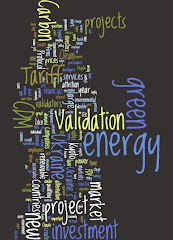
There is a new technology on the horizon to help meet Ukraine’s energy challenges, and it comes from chickens.
Swiss company Alter Energy Group AG (www.alterenergygroup.com) is working to implement a sophisticated waste to energy process in Ukraine that converts poultry manure into clean, environmentally safe, industrial scale electricity and heat.
This is a highly uncommon type of energy project, and upon completion Alter Energy Group’s Ukrainian projects will join a tiny handful of similar projects worldwide.
The company’s technical approach involves burning chicken manure to create large amounts of electricity and heat. This heat and electricity then is supplied to Ukraine’s wholesale energy market and the surrounding population. It all sounds simple enough, however the process is in fact highly complex due to poultry manure’s tricky ammonia content and ash problems.
Poultry manure contains so much ammonia that it routinely destroys normal project equipment. It also causes toxic pollutants to be released into the air during the incineration process unless handled in a very delicate manner. The ash resulting from burned poultry manure also is uniquely disruptive. For this reason, only about seven commercial scale poultry waste to energy projects have been completed anywhere in the world thus far.
Alter Energy Group claims to have carefully dealt with all these chicken challenges by using a waste to energy methodology with a proven poultry-specific track record. In addition to heat and electricity, their projects will also produce large quantities of nutrient rich bio-fertilizers and animal feed for sale.
Ukraine is a country of large Soviet style poultry farms, and Ukrainian farmers presently have limited commercial use for their livestock waste. An opportunity therefore exists, with the right technology, for Ukrainian farmers to work with companies like Alter Energy Group to create a profitable new renewable energy niche market. Alter Energy Group’s first Ukrainian chicken projects could be completed sometime during early 2010, if all goes well. These types of projects qualify for Ukraine’s Green Tariff as biomass energy and also for carbon credits under the Kyoto Protocol.
Making clean energy from chicken manure is a relatively uncommon thing. Even in the most advanced renewable energy countries these projects are relatively unknown. It will be interesting to observe how things unfold in Ukraine with Alter Energy Group's chicken projects, and to watch whether similar projects are undertaken in neighboring CIS countries.
I will continue to monitor this area and report new developments as they arise.




